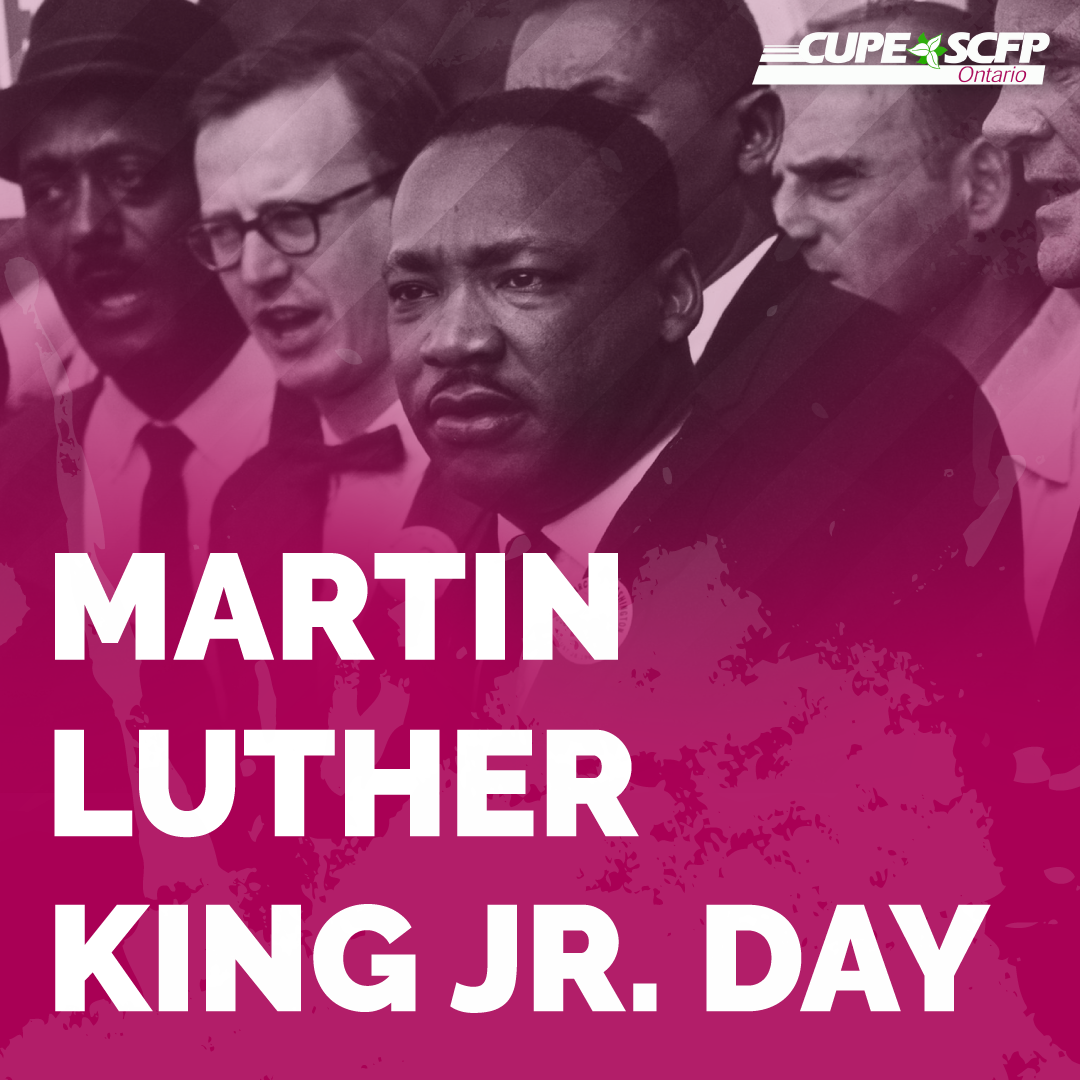
Today, we remember Martin Luther King Jr. and honour his teachings by weaving the struggle for racial and economic justice into all our work as a union.
It is often forgotten that King worked closely with organized labour all his life. His final days were spent with sanitation workers in Memphis, on strike following years of poor pay and dangerous working conditions. Martin Luther King Jr. Day would not be observed as widely as it is today without labour activism—particularly by Black union members. Workers first demanded it as a paid holiday in contract negotiations, with unions later providing financial support to extend it across the United States.
Dr. King’s connection to trade unionism was integral to his fight against racism. He understood that economic and racial justice are interconnected—that we can’t achieve one without the other. This insight remains the centrepiece of our fight for workers’ rights. It’s why CUPE pursues better working conditions for public employees alongside campaigns that tackle racism in our workplaces and in our communities.
That work is of vital importance in the face of claims that racism no longer exists in our province. On the contrary, a 2018 report from the Ontario Human Rights Commission found that Black people are “grossly overrepresented” in incidents where police use force resulting in injury or death. The rise of far-right politics represented by the likes of Donald Trump and Doug Ford has emboldened extremists to air racist, Islamophobic, and anti-Semitic views. According to Statistics Canada, hate crimes reached an all time high in 2017 while the poverty rate for racialized Canadians remains 10 percent higher than the rest of the population. Racialized Canadians, and Black people in particular, continue to face high levels of employment and housing discrimination.
This engrained, systemic racism is enabled and encouraged by the Ford Conservative government’s rhetoric and policies. Premier Ford cut funding to the Anti-Racism Directorate and said he feels that “certain carding is required”—referencing a police practice based on racial profiling. During the 2018 provincial election, Ford turned his back on the first official provincial leadership debate organized by the Black community. In December 2018, Ford cut millions in funding for specialized programs, many of which help at-risk youth from racialized communities. His backtracking on key labour reforms under Bill 148, including the cancellation of the $15/hr minimum wage, has disproportionately impacted racialized workers. His signature attack on workers—Bill 124—caps compensation for public service employees, making it harder for racialized workers to get ahead.
But we aren’t letting racism go unacknowledged or unchallenged. CUPE Ontario and the CUPE Ontario Racial Justice Committee are implementing a wide-ranging Anti-Racism Organizational Action Plan to fight discrimination in our own union. We are pursuing an anti-White Supremacy Campaign to fight racism in workplaces and communities. We are supporting grassroots anti-racism movements like the Migrant Rights Network and Black Lives Matter. And we are a key part of the fightback against regressive Ford Conservative policies like Bill 124 that put economic and racial justice further out of reach.
The evils King fought against—racism and economic inequality—are as stark now as they were in his day. Despite meagre gains, we have been slipping steadily backwards. Martin Luther King Jr. day is not just about remembrance, but mobilization and action: we must breathe new life into principles upon which he and others organized, and the members of CUPE Ontario are committed to that goal.
